






Guardian Recovery - Tampa Addiction Center
Treatment Focus
This center treats substance use disorders and co-occurring mental health conditions. Your treatment plan addresses each condition at once with personalized, compassionate care for comprehensive healing.
Primary Level of Care
Offering intensive care with 24/7 monitoring, residential treatment is typically 30 days and can cover multiple levels of care. Length can range from 14 to 90 days typically.
This provider hasn't verified their profile's information. Are you the owner of this center? Claim your listing to better manage your presence on Recovery.com.
Treatment Focus
This center treats substance use disorders and co-occurring mental health conditions. Your treatment plan addresses each condition at once with personalized, compassionate care for comprehensive healing.
Primary Level of Care
Offering intensive care with 24/7 monitoring, residential treatment is typically 30 days and can cover multiple levels of care. Length can range from 14 to 90 days typically.
Provider's Policy
Guardian Recovery - Tampa Addiction Center will contact your insurance provider to learn more about your benefits and how you are covered. Their Treatment Advisors will share all your insurance benefit information with you in simple language so you can understand exactly what your coverage includes.
Guardian Recovery - Tampa Addiction Center
Guardian Recovery - Tampa Addiction Center
About Guardian Recovery - Tampa Addiction Center
*CLOSED* Guardian Recovery - Tampa Addiction Center provides detox and short-term residential treatment in a comfortable, newly updated environment. Their on-site nurses, psychiatrist, and counselors work together to make detox as comfortable as possible. During detox, clients use medication-assisted treatment (MAT) for drug and alcohol withdrawal during detox. Following detox, short-term residential care introduces evidence-based therapies and practices to stabilize clients and prepare them for ongoing care. Individual, group, and family therapy are paired with holistic practices for whole-person healing. For self-employed clients, an executive program allows for phone and laptop access in certain cases during business hours.
Personalized Care
Guardian Recovery - Tampa Addiction Center begins treatment with an addiction assessment and psychiatric evaluation. They strive to understand the past and present of each client to customize their treatment to their needs. A psychiatric evaluation helps Guardian Recovery treat any co-occurring mental health conditions, and underlying trauma or post-traumatic stress (PTSD). For professionals and business owners, their executive program allows tech access for clients who run their own business.
Comprehensive, Engaging Treatment
Clients have the option to attend weekly 1:1 therapy sessions and daily group sessions. Guardian Recovery - Tampa Addiction Center also offers 12-Step meetings, family therapy, and psychoeducational workshops centered around recovery. During residential care, therapy continues alongside 12-step meetings, family therapy, and psychoeducational workshops centered around recovery.
Detox in a Serene Environment
Guardian Recovery provides intervention services, short-term residential treatment, and connections to further care, like a residential rehab. Guardian Recovery's newly updated home offers a clean and comfortable home-style retreat for recovery, with an on-site kitchen, lounge areas, and the option of private rooms.

Highlights from the Center
Highlights
These highlights are provided by and paid for by the center.
Customized Treatment Plans
Medically Assisted Detox
12-Step Approach
Center Overview
Treatment Focus
This center treats substance use disorders and co-occurring mental health conditions. Your treatment plan addresses each condition at once with personalized, compassionate care for comprehensive healing.
Joint Commission Accredited
The Joint Commission accreditation is a voluntary, objective process that evaluates and accredits healthcare organizations (like treatment centers) based on performance standards designed to improve quality and safety for patients. To be accredited means the treatment center has been found to meet the Commission's standards for quality and safety in patient care.

Insurance Accepted
Cash Pay Rates
Estimated Cash Pay Rate
Center pricing can vary based on program and length of stay. Contact the center for more information. Recovery.com strives for price transparency so you can make an informed decision.
Meet Your Care Team

Billy LaBare
Director of Operations
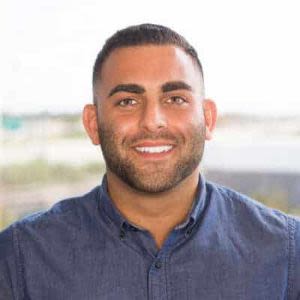
Ryan Newman
Director of Admissions

Brianna Bricken
Admissions Manager

Sarah Babaa
Treatment Advisor/Concierge Account Manager
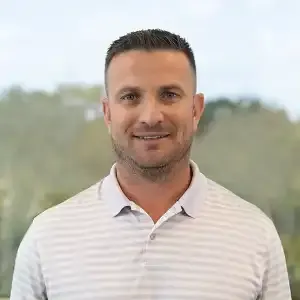
Michael Audette
Treatment Advisor
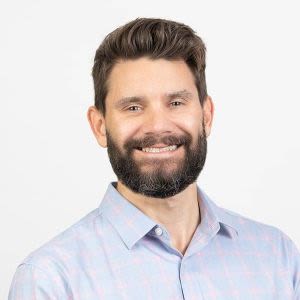
Chip Roy
Treatment Advisor

Kenny Silver
VP of Treatment Services

Lucille Moore
Director of Nursing
RN

Lauren Strickler
Primary Therapist
MS, LMHC

Jackie Dowgiallo
Clinical Director
LMHC, CAP
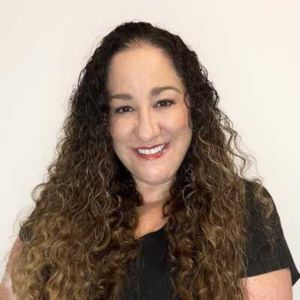
Jessica Leer
Nurse Manager
MSN, RN
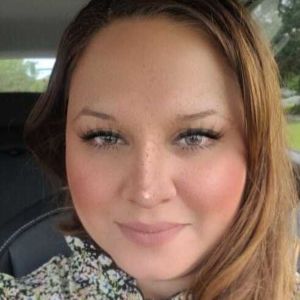
Tanairi Santos
Therapist
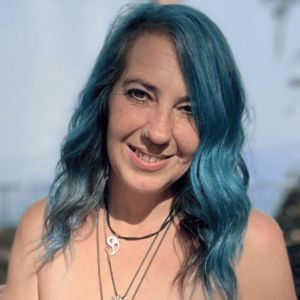
Valerie Laughlin
Therapist




Levels of Care






Your Care Options
Specializations
Prescription Drugs
It's possible to abuse any drug, even prescribed ones. If you crave a medication, or regularly take it more than directed, you may have an addiction.
Drug Addiction
Drug addiction is the excessive and repetitive use of substances, despite harmful consequences to a person's life, health, and relationships.
Opioids
Opioids produce pain-relief and euphoria, which can lead to addiction. This class of drugs includes prescribed medication and the illegal drug heroin.
Medication-Assisted Treatment
Combined with behavioral therapy, prescribed medications can enhance treatment by relieving withdrawal symptoms and focus patients on their recovery.
Alcohol
Using alcohol as a coping mechanism, or drinking excessively throughout the week, signals an alcohol use disorder.
Who We Treat
Men and Women
Men and women attend treatment for addiction in a co-ed setting, going to therapy groups together to share experiences, struggles, and successes.
Young Adults
Emerging adults ages 18-25 receive treatment catered to the unique challenges of early adulthood, like college, risky behaviors, and vocational struggles.
Midlife Adults
For adults ages 40+, treatment shifts to focus on the unique challenges, blocks, and risk factors of their age group, and unites peers in a similar community.
LGBTQ+
Addiction and mental illnesses in the LGBTQ+ community must be treated with an affirming, safe, and relevant approach, which many centers provide.
Approaches
Twelve Step
Incorporating spirituality, community, and responsibility, 12-Step philosophies prioritize the guidance of a Higher Power and a continuation of 12-Step practices.
Medical
Medical addiction treatment uses approved medications to manage withdrawals and cravings, and to treat contributing mental health conditions.
Evidence-Based
A combination of scientifically rooted therapies and treatments make up evidence-based care, defined by their measured and proven results.
Therapies
1-on-1 Counseling
Patient and therapist meet 1-on-1 to work through difficult emotions and behavioral challenges in a personal, private setting.
Family Therapy
Family therapy addresses group dynamics within a family system, with a focus on improving communication and interrupting unhealthy relationship patterns.
Twelve Step Facilitation
12-Step groups offer a framework for addiction recovery. Members commit to a higher power, recognize their issues, and support each other in the healing process.
Relapse Prevention Counseling
Relapse prevention counselors teach patients to recognize the signs of relapse and reduce their risk.
Medication-Assisted Treatment
Combined with behavioral therapy, prescribed medications can enhance treatment by relieving withdrawal symptoms and focus patients on their recovery.
Conditions We Treat
Post Traumatic Stress Disorder
PTSD is a long-term mental health issue caused by a disturbing event or events. Symptoms include anxiety, dissociation, flashbacks, and intrusive thoughts.
Anxiety
Anxiety is a common mental health condition that can include excessive worry, panic attacks, physical tension, and increased blood pressure.
Depression
Symptoms of depression may include fatigue, a sense of numbness, and loss of interest in activities. This condition can range from mild to severe.
Codependency
Codependency is a pattern of emotional dependence and controlling behavior. It's most common among people with addicted loved ones.
Internet Addiction
Internet addiction is common among children teens. This compulsive disorder can damage relationships, school performance, sleep habits, and physical health.
Stress
Stress is a natural reaction to challenges, and it can even help you adapt. However, chronic stress can cause physical and mental health issues.
Bipolar
This mental health condition is characterized by extreme mood swings between depression, mania, and remission.
Trauma
Some traumatic events are so disturbing that they cause long-term mental health problems. Those ongoing issues can also be referred to as "trauma."
Anger
Although anger itself isn't a disorder, it can get out of hand. If this feeling interferes with your relationships and daily functioning, treatment can help.
Substances We Treat
Cocaine
Cocaine is a stimulant with euphoric effects. Agitation, muscle ticks, psychosis, and heart issues are common symptoms of cocaine abuse.
Prescription Drugs
It's possible to abuse any drug, even prescribed ones. If you crave a medication, or regularly take it more than directed, you may have an addiction.
Benzodiazepines
Benzodiazepines are prescribed to treat anxiety and sleep issues. They are highly habit forming, and their abuse can cause mood changes and poor judgement.
Co-Occurring Disorders
A person with multiple mental health diagnoses, such as addiction and depression, has co-occurring disorders also called dual diagnosis.
Drug Addiction
Drug addiction is the excessive and repetitive use of substances, despite harmful consequences to a person's life, health, and relationships.
Chronic Relapse
Consistent relapse occurs repeatedly, after partial recovery from addiction. This condition requires long-term treatment.
Heroin
Heroin is a highly addictive and illegal opioid. It can cause insomnia, collapsed veins, heart issues, and additional mental health issues.
Languages
Aftercare
Care Designed for Your Needs
Personal Amenities
Amenities
Special Considerations
Flexible technology policies
Centers with flexible technology policies allow professionals to stay in touch with work and give patients a greater sense of connection and normalcy.
Executive Program
Addiction and mental health treatment for executives typically involves high discretion, greater technology access, and more private, 1-on-1 care.
Activities
Yoga
Yoga is both a physical and spiritual practice. It includes a flow of movement, breathing techniques, and meditation.

What people are saying
Treatment
4.5
Accommodations
4.8
Food & Nutrition
4.2
Value
4.4
Pros
- Beautiful Location (5)
- Personalized (5)
- Treated With Respect (5)
- Friendly & Competent Staff (4)
Gustavo villafranca
Treatment in 2024 • (30 days) • Reviewed 07/18/24
Former Client
•USA
Luis
Treatment in 2024 • (30 days) • Reviewed 06/04/24
Former Client
•Investor and sales
•Miami
Nafelli
Treatment in 2023 • (14 days) • Reviewed 12/03/23
Former Client
•Caretaker
Anonymous
Treatment in 2023 • (7 days) • Reviewed 05/03/23
Former Client
•Manager
Samantha
Treatment in 2023 • (3 weeks) • Reviewed 12/03/23
Former Client





